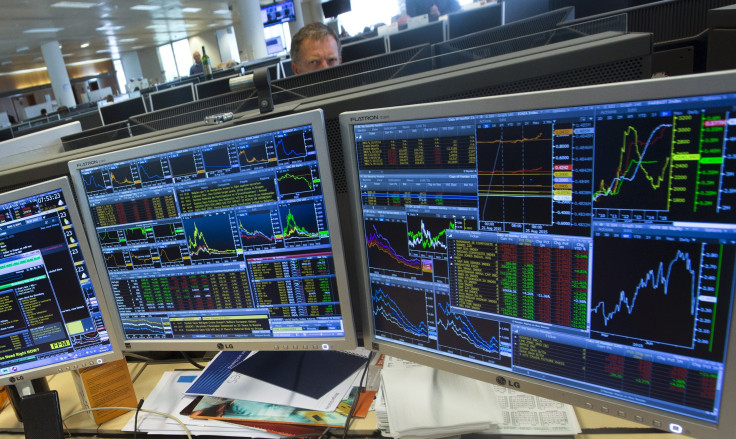Stock Markets, Government Bond Yields Drop As Investors Flee To Safe Assets After Brussels Blasts

European stock markets dropped at open Tuesday after two explosions at Brussels airport killed at least 13 person and left at least another 35 injured. The pan-European Stoxx 600 dropped 0.6 percent in morning trade, led by losses in the consumer-services sector, while the Brussels benchmark BEL 20 index plunged over 1.2 percent before paring some of its losses.
“The dark cloud of terrorism appears to have returned to haunt European markets this morning with reports of fatal explosions at Brussels airport weighing heavily on sentiment,” Tony Cross, a market analyst at Trustnet Direct, wrote in a note. “After what happened to tourism in Paris after last year’s attacks, the sector will be anticipating tougher times ahead.”
Meanwhile, gold and government bonds, both safe-haven assets, rose. The yields on the benchmark 10-year government bonds in Belgium and Germany dropped by 2 and 3 basis points to 0.45 percent and 0.19 percent respectively. Bond yields move inversely to prices.
France’s CAC 40 dropped 1.22 percent at the open, while Germany’s DAX index fell 1.26 percent, but both recovered some of their losses later. Investor sentiment in the two countries also seems to be hurt by fresh economic data released Tuesday that showed a persistent slowdown in growth in the manufacturing sector. However, the eurozone as a whole avoided a slowdown, with the purchasing managers’ index (PMI) for the 19-nation bloc rising to a three month high of 53.7 in March.
Any PMI number above 50 indicates an expansion.
“The eurozone saw renewed signs of life at the start of spring. The March PMI showed a welcome end to the worrying slowdown trend seen in the first two months of the year, putting the region on course for a 0.3 percent expansion of GDP in the first quarter,” Chris Williamson, chief economist at Markit, said in a statement. “Plenty of worrying signs persist, however, to take the shine off the rise in the headline PMI. New order growth barely improved on the one-year low seen in February and job creation slowed further, which suggests that stronger growth in coming months is by no means assured.”
U.S. stock futures were also down Tuesday, as traders reacted to the news of the blasts in Brussels. S&P 500 and Nasdaq futures were trading down 0.3 percent, while Dow Jones futures dropped 0.2 percent.
Earlier, stock markets were mostly mixed in Asia. Japan’s Nikkei 225 index ended 1.9 percent higher as it reopened after a extended weekend, while the Shanghai Composite Index dropped 0.64 percent after policymakers guided the yuan weaker. India's S&P BSE Sensex and South Korea's Kospi Composite Index ended the day marginally higher.
© Copyright IBTimes 2024. All rights reserved.





















